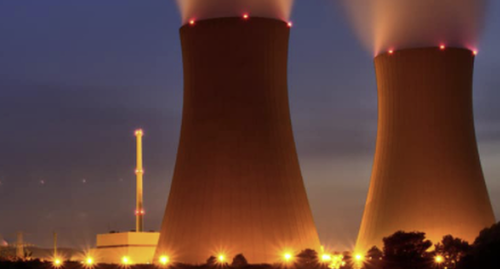German Economy Minister Habeck Reportedly Pushing For Nuclear Plants To Stay On Grid
It sure looks as though momentum is all of a sudden getting behind nuclear power, with even NPR coming out and writing yesterday that “resistance to nuclear power is on the decline worldwide — and environmentalists helped lead the push.”
Now, with energy prices going parabolic in his country, German Economy Minister Robert Habeck is once again pushing nuclear power plants that were set to be shut down to stay on the grid for longer, Bloomberg reported yesterday.
The ministry is looking at a potential draft law to facilitate the extension, Bloomberg noted, citing Der Spiegel. It has also changed the parameters for stress tests on the country’s energy security that would make prolonging the reactors a viable option.
Recall, in mid August, we wrote that Germany was considering the idea of keeping the plants online.
The country has been mulling over the idea of extending the life of its nuclear power plant fleet for months as the ‘wait and see’ approach of Russia actually increasing Nord Stream 1’s NatGas capacity to normal levels ahead of winter is a dangerous one.
As German power prices surged above 500 euros per megawatt-hour on the European Energy Exchange AG for the first time as the energy crisis worsened, WSJ reported two weeks ago that the largest economy in Europe would “postpone” the closure of its last three nuclear power plants.
Three senior government officials told WSJ that the decision to extend the life of its nuclear power plants has yet to be formally adopted by German Chancellor Olaf Scholz’s cabinet and will still need a parliamentary vote.
However, following the WSJ report that indicated Germany plans to postpone the closure of its last three nuclear power plants, the German spokesperson for the Federal Ministry for Economic Affairs and Climate Action said the media report about extending the life of nuclear plants “lacks any factual basis.”
We wonder if Germany would like to revisit this statement now? We noted a couple weeks ago that the country has about three months to save itself from a winter energy crisis.
Tyler Durden
Thu, 09/01/2022 – 05:45

